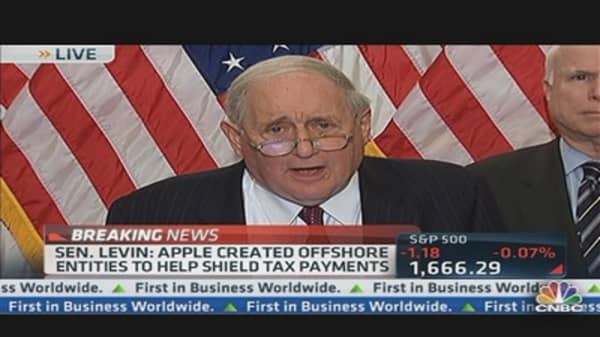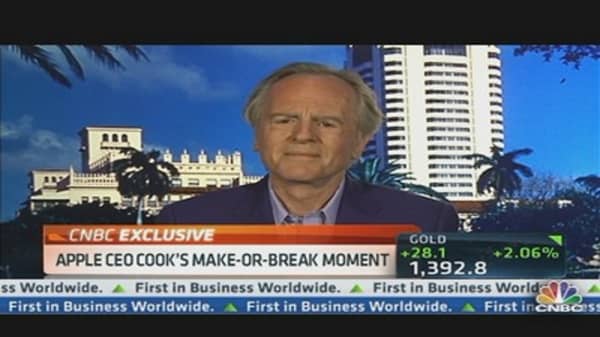Using an unusual global tax structure, Apple has held billions of dollars in profits in Irish subsidiaries to pay little or no taxes to any government, a Senate report on the company's offshore tax structure concluded on Monday.
In a 40-page memorandum released a day before Apple CEO Tim Cook is scheduled to testify before Congress, the Senate's Permanent Subcommittee on Investigations identified three subsidiaries that have no "tax residency" in Ireland, where they are incorporated, or in the United States, where company executives manage those companies.
The main subsidiary, a holding company that includes Apple's retail stores throughout Europe, has not paid any corporate income tax in the last five years.
The subsidiary, which has a Cork, Ireland, mailing address, received $29.9 billion in dividends from lower-tiered offshore Apple affiliates from 2009 to 2012, comprising 30 percent of Apple's total worldwide net profits, the report said.
"Apple has exploited a difference between Irish and U.S. tax residency rules," the report said.





